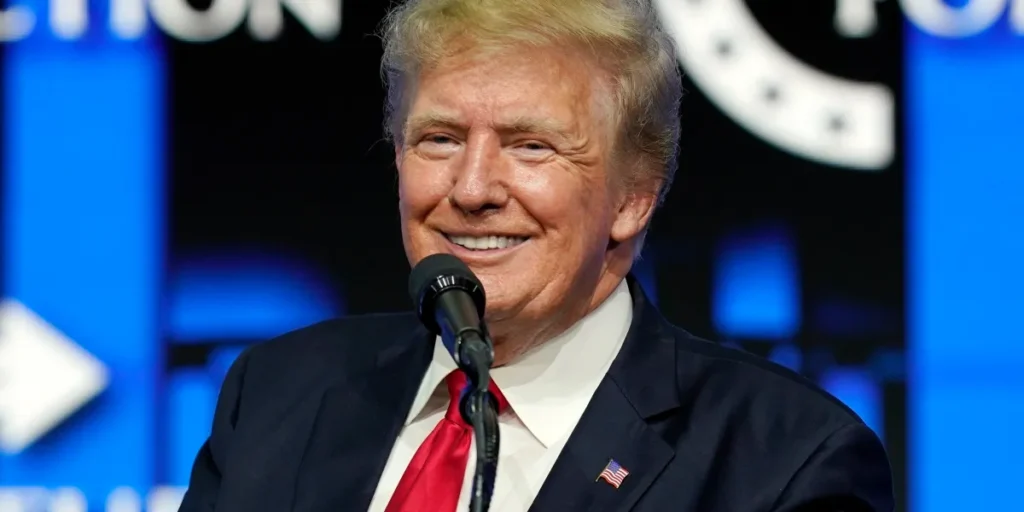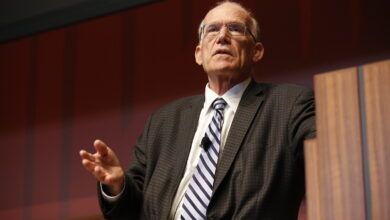Ron Filipkowski Twitter A Deep Dive into the Legal Analyst’s Social Media Influence

Who Is Ron Filipkowski?
Ron Filipkowski Twitter widely recognized by his Twitter handle @RonFilipkowski, has emerged as one of the most influential legal analysts and political commentators on social media. A former federal prosecutor and defense attorney, Filipkowski’s career spans over two decades in the legal field. His expertise in criminal law, combined with his sharp wit and unapologetic critique of political figures, has earned him a dedicated following of over 500,000 users on Twitter.
Ron Filipkowski Twitter background is rooted in a deep understanding of the American legal system. After graduating from law school, he spent years working as a prosecutor, handling high-profile cases involving organized crime, white-collar offenses, and public corruption. This experience provided him with a nuanced perspective on how the law intersects with politics—a theme that dominates his social media commentary. His transition from practicing law to becoming a full-time commentator was gradual, driven by his desire to shed light on legal complexities for a broader audience.
What sets Ron Filipkowski Twitter apart is his unique trajectory from a self-described “conservative Republican” to a vocal critic of the modern GOP. He openly discusses his disillusionment with the party’s direction post-2016, particularly its alignment with former President Donald Trump. This personal evolution has shaped his Twitter persona, where he dissects legal controversies, political hypocrisy, and misinformation with equal parts humor and rigor. His ability to break down intricate legal jargon into digestible insights has made him a go-to source for followers seeking clarity on current events.
The Evolution of Ron Filipkowski’s Twitter Presence

Ron Filipkowski Twitter journey began as a modest platform to share legal analysis, but it quickly transformed into a hub for real-time political discourse. In its early stages, his tweets focused on case law, courtroom strategies, and occasional critiques of judicial decisions. However, the 2016 election and its aftermath marked a turning point. As Trump’s presidency unfolded, Filipkowski’s feed became increasingly politicized, reflecting his growing concerns about threats to democratic norms.
By 2020, his account had evolved into a blend of legal expertise and biting satire.Ron Filipkowski Twitter began leveraging viral moments—such as Trump’s impeachment trials or the January 6th insurrection—to provide threaded analyses that debunked false narratives. His coverage of the Georgia election interference case, for example, combined court documents with accessible commentary, helping followers grasp the stakes of the investigation. This shift not only broadened his audience but also positioned him as a trusted voice in a landscape crowded with partisan pundits.
A key factor in Ron Filipkowski Twitter rise has been his willingness to engage directly with critics and supporters alike. Unlike many commentators who avoid debates, he often responds to detractors with evidence-based rebuttals, turning contentious exchanges into teaching moments. His use of humor—meme formats, sarcastic quips, and pop culture references—further humanizes complex topics, making legal discussions relatable to non-experts. This approach has turned @RonFilipkowski into a dynamic space where law, politics, and internet culture intersect.
Key Themes in Ron Filipkowski’s Twitter Content
1. Legal Analysis of High-Profile Cases
Filipkowski’s Twitter feed serves as a live textbook on ongoing legal battles involving political figures. His threads on Donald Trump’s indictments, for instance, dissecting charging documents, procedural nuances, and potential trial outcomes. During the New York civil fraud case against Trump, Filipkowski provided daily updates, explaining how asset valuation fraud allegations could impact Trump’s business empire. His ability to contextualize legal strategies—such as defense motions or prosecution tactics—helps demystify the judicial process for his audience.
Another recurring theme is his critique of “lawfare,” a term often used by conservatives to accuse liberals of weaponizing the legal system. Filipkowski counters this narrative by highlighting precedents and legal standards, arguing that accountability for powerful figures is a cornerstone of democracy. His analysis of Supreme Court decisions, particularly those involving ethics controversies or partisan rulings, underscores his belief in an independent judiciary.
2. Exposing Political Hypocrisy and Misinformation
Filipkowski’s Twitter account is a relentless fact-checking machine. He routinely exposes contradictions in GOP rhetoric, such as lawmakers decrying “political prosecutions” while supporting harsh penalties for non-political offenses. One viral thread juxtaposed Republican statements on Hunter Biden’s legal troubles with their silence on similar allegations against Trump associates, illustrating what he calls “selective outrage.”
He also targets misinformation spread by right-wing media. When Fox News segments or Trump speeches distort legal facts, Filipkowski responds with video clips, court records, or historical context to dismantle false claims. His takedowns of election fraud conspiracies after the 2020 election earned praise from journalists and academics, who credit him for countering disinformation in real-time.
Impact and Influence of Ron Filipkowski on Twitter
Filipkowski’s influence extends beyond his follower count. His tweets are frequently cited by mainstream media outlets like MSNBC, CNN, and The Washington Post, where legal experts use his insights to enrich their reporting. During the January 6th hearings, his live-tweeted analysis was quoted by congressional staffers and journalists, underscoring his role as a bridge between legal academia and public discourse.
Moreover, his commentary has shaped grassroots activism. Followers often share his threads to educate their networks, sparking broader conversations about judicial accountability. Filipkowski’s collaboration with organizations like the Lincoln Project—a anti-Trump GOP group—has further amplified his reach, though it has also drawn criticism from progressives who question his conservative past.
Critics argue that Filipkowski’s partisan tone risks alienating moderates. Some legal scholars caution that his blend of snark and analysis could undermine his credibility, though supporters counter that his approach is necessary to combat today’s hyper-polarized rhetoric. Regardless, his ability to drive narratives is undeniable: tweets from @RonFilipkowski routinely rack up millions of impressions, influencing how audiences perceive breaking legal news.
The Role of Twitter in Modern Political Discourse

Ron Filipkowski’s success underscores Twitter’s evolving role as a public square for political debate. Unlike traditional media, Twitter allows experts to bypass editorial gatekeepers and engage directly with audiences. For legal analysts like Filipkowski, this democratization of information has been transformative. Real-time commentary on trials, legislation, or speeches can now reach global audiences instantly, fostering a more informed (if often chaotic) discourse.
However, the platform’s brevity and algorithmic incentives also pose challenges. Complex legal arguments risk being oversimplified, and heated exchanges can devolve into toxicity. Filipkowski navigates this by pairing concise takes with threaded deep dives, balancing accessibility with depth. His use of multimedia—embedding court documents, video clips, or charts—enhances clarity without sacrificing rigor.
As Twitter faces existential threats under Elon Musk’s ownership, figures like Filipkowski represent both its potential and fragility. While the platform remains indispensable for real-time analysis, issues like misinformation and hate speech loom large. Filipkowski’s advocacy for platform accountability—calling out Twitter’s inconsistent moderation policies—reflects his broader commitment to ethical discourse, even as he leverages the tool to its fullest.
FAQs About Ron Filipkowski and His Twitter Presence
Q1: What is Ron Filipkowski’s professional background?
A: Filipkowski is a former federal prosecutor and criminal defense attorney with over 20 years of experience. He specialized in organized crime and public corruption cases before transitioning to legal commentary.
Q2: Why did Ron Filipkowski leave the Republican Party?
A: He became disillusioned with the GOP’s embrace of Donald Trump and its departure from traditional conservative principles, such as the rule of law and institutional respect.
Q3: What are the main topics he focuses on?
A: His content centers on legal analysis of Trump’s cases, critiques of GOP hypocrisy, debunking misinformation, and advocating for judicial accountability.
Q4: How accurate is his legal commentary?
A: Filipkowski’s analysis is grounded in his legal expertise and supported by court documents. While he has critics, his track record of accurate predictions (e.g., Trump’s indictment timelines) bolsters his credibility.
Q5: Has he faced backlash for his views?
A: Yes. He’s been targeted by Trump allies and conservative media, often accused of bias. However, he maintains that his critiques are evidence-based.
Q6: How can I follow his work?
A: Follow @RonFilipkowski on Twitter. He also occasionally contributes to MSNBC and writes for Substack





